Some of us are parents. Some of us are grandparents. All of us have people we love. And all those people are threatened by the ecocidal policies of the current president.
This is the first administration in memory that does not even pay lip service to the environmental crisis — and instead boasts about policies that make it worse. In a climate emergency, could anything be more reprehensible than an energy policy animated by the slogan “Drill, Baby, Drill”?
As Earth Day draws our attention to the existential threat we confront, teachers can resist the billionaires’ neglect of Mother Nature by teaching critical environmental justice lessons. Let’s ask: Who benefits from the current distribution of wealth and power? Who suffers? Who are the individuals and social movements pointing the way to ecological sanity? How can students play a role in these movements, and find the efficacy that nurtures hope and joy?
The Zinn Education Project is home to numerous lessons — participatory, thought-provoking, academically imaginative — to help students grasp the enormity of the environmental crisis, but also find paths to make a difference, to challenge the profit-first, fossil fuel-forever priorities of the people temporarily running this country.
One of the climate justice lessons we offer is the Climate Crisis Trial: A Role Play on the Roots of Global Warming. Middle school teacher Brett Benson says of this role play, “This is one of those lessons teachers dream about where students are walking out the door still discussing and debating.” Find many more lessons on the link below.
Find many more lessons and teaching stories on environmental justice in the Rethinking Schools publication, A People’s Curriculum for the Earth.
Also, check out recommended books on the environment for pre–K to 12 at Teaching for Change’s Social Justice Books.
Teach Truth Snapshot
Although we are hosting the 5th annual Teach Truth Day of Action on June 7 — every day is a “day of action,” as teachers engage students in lessons on people’s history, critical thinking, and analyzing current events.
Here is one of countless examples, by elementary school social studies teacher Chelsea Zapp, who used our Climate Crisis Trial: A Role Play on the Roots of Global Warming lesson and our Climate Crisis Timeline.
Last year, I used the Climate Crisis Trial: A Role Play on the Roots of Global Warming by Bill Bigelow with my students to teach about climate change and environmental justice. Students took on roles — corporations, governments, activists, and Indigenous leaders — to explore the causes of global warming. They learned how past decisions impact the environment today and they had meaningful discussions about land rights and the role of Indigenous communities in protecting the earth.
We also used the Climate Crisis Timeline by Mimi Eisen and Ursula Wolfe-Rocca to connect the lesson to real-world events. Students were especially inspired by young climate activists like Greta Thunberg and Autumn Peltier. This led them to write letters to local leaders advocating for stronger climate action.
The role-play and timeline helped my students understand the climate crisis and their power to make a difference. These lessons made them feel engaged, empathetic, and ready to take action.
Free Book
In appreciation for a teaching story about either of our lessons on reparations, any of our lessons on climate justice, or the climate crisis timeline, we can send you a copy of the new edition of Olúfẹ́mi O. Táíwò’s Reconsidering Reparations: Why Climate Justice and Constructive Politics Are Needed in the Wake of Slavery and Colonialism. Táíwò offers a clear, new case for reparations as a “constructive,” future-oriented project: one that responds to the weight of history’s injustices with just distributions of benefits and burdens.
Learn about Reconsidering Reparations from the recording of our class with Olúfẹ́mi O. Táíwò as part of our Teach the Black Freedom Struggle series. Táíwò discussed the “ancestor perspective” and “constructive” reparations to help us meet the climate crisis. He said that it is impossible to tell a meaningful story of the last 500-plus years without emphasizing resistance — that oppressed people have always had their hands on the steering wheel of history. And that is true today, too. It is what we mean by a people’s history of the United States.


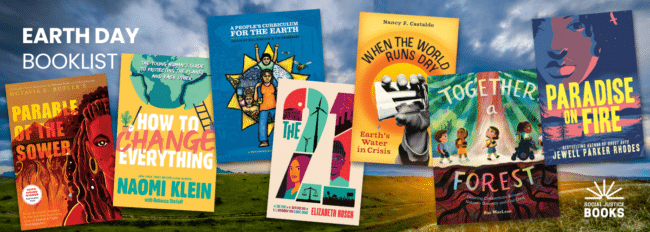

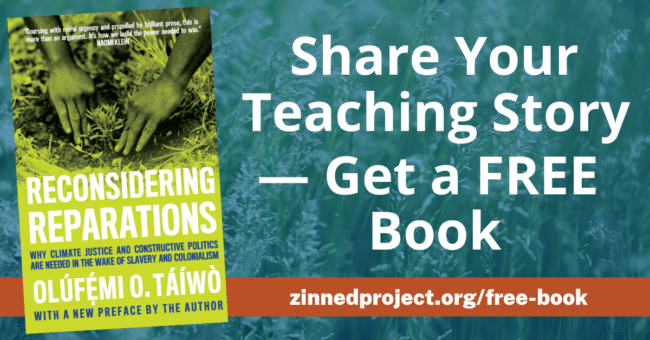
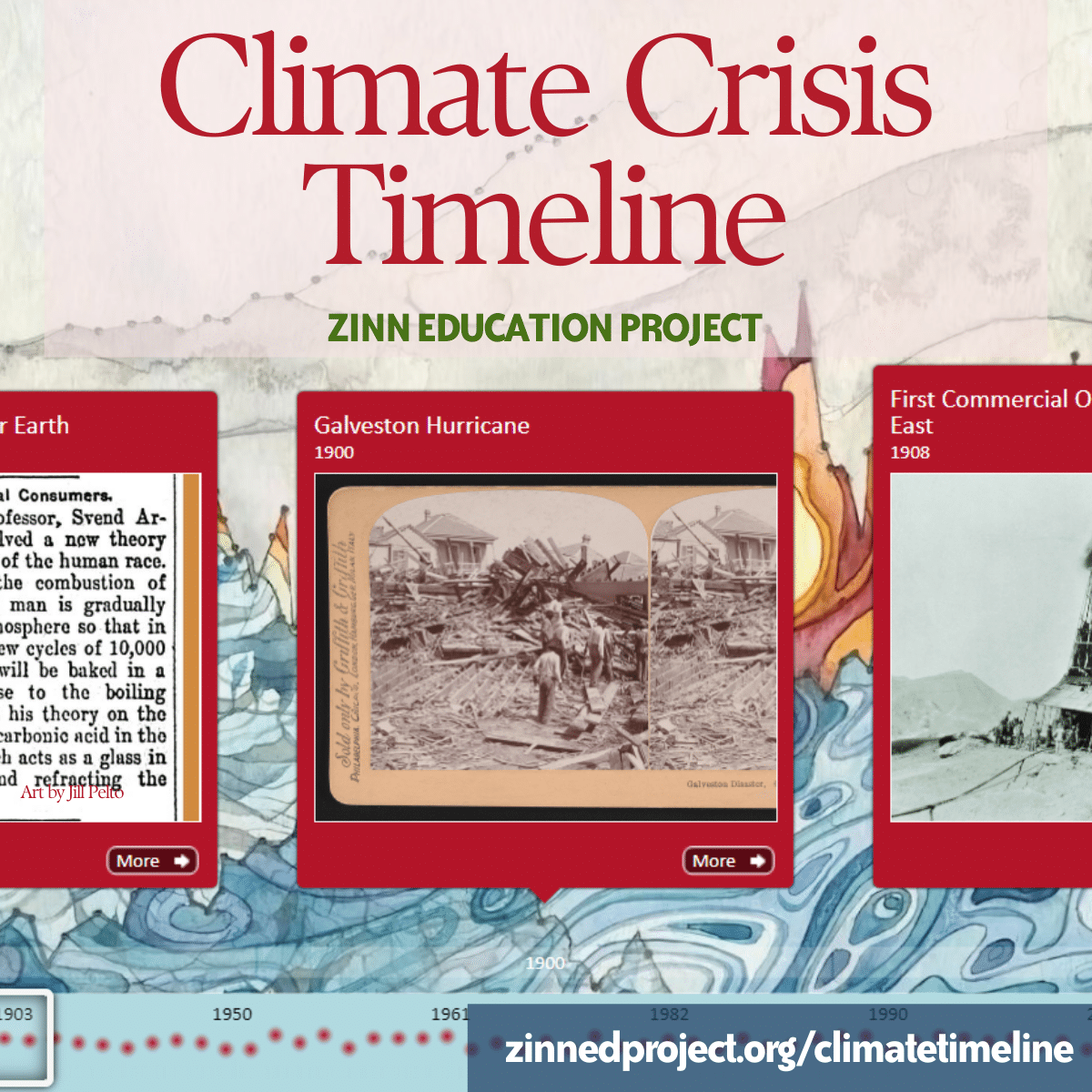

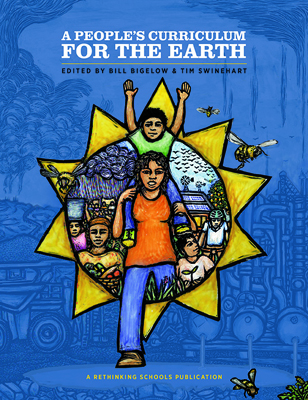
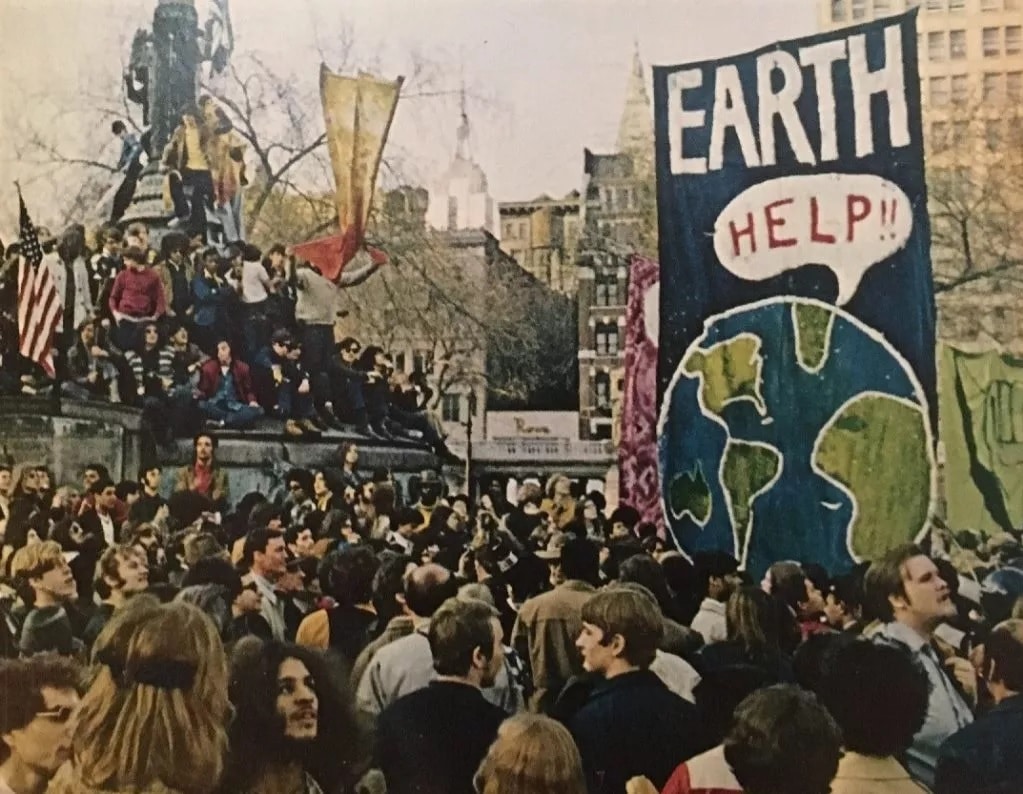
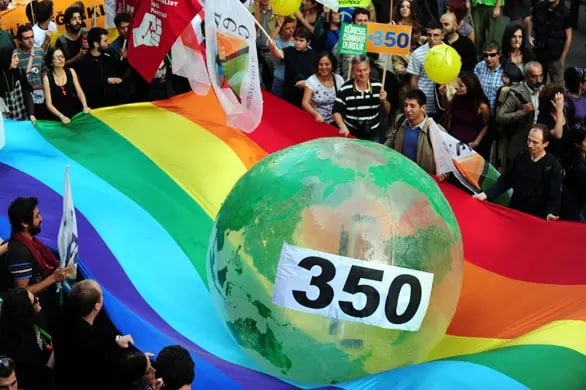
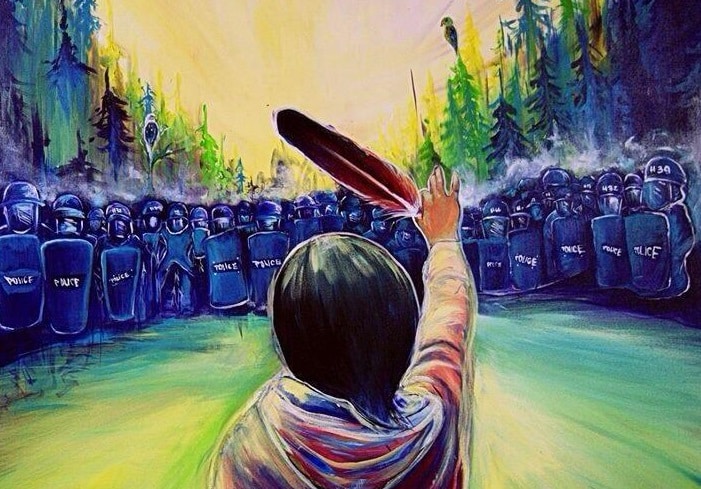
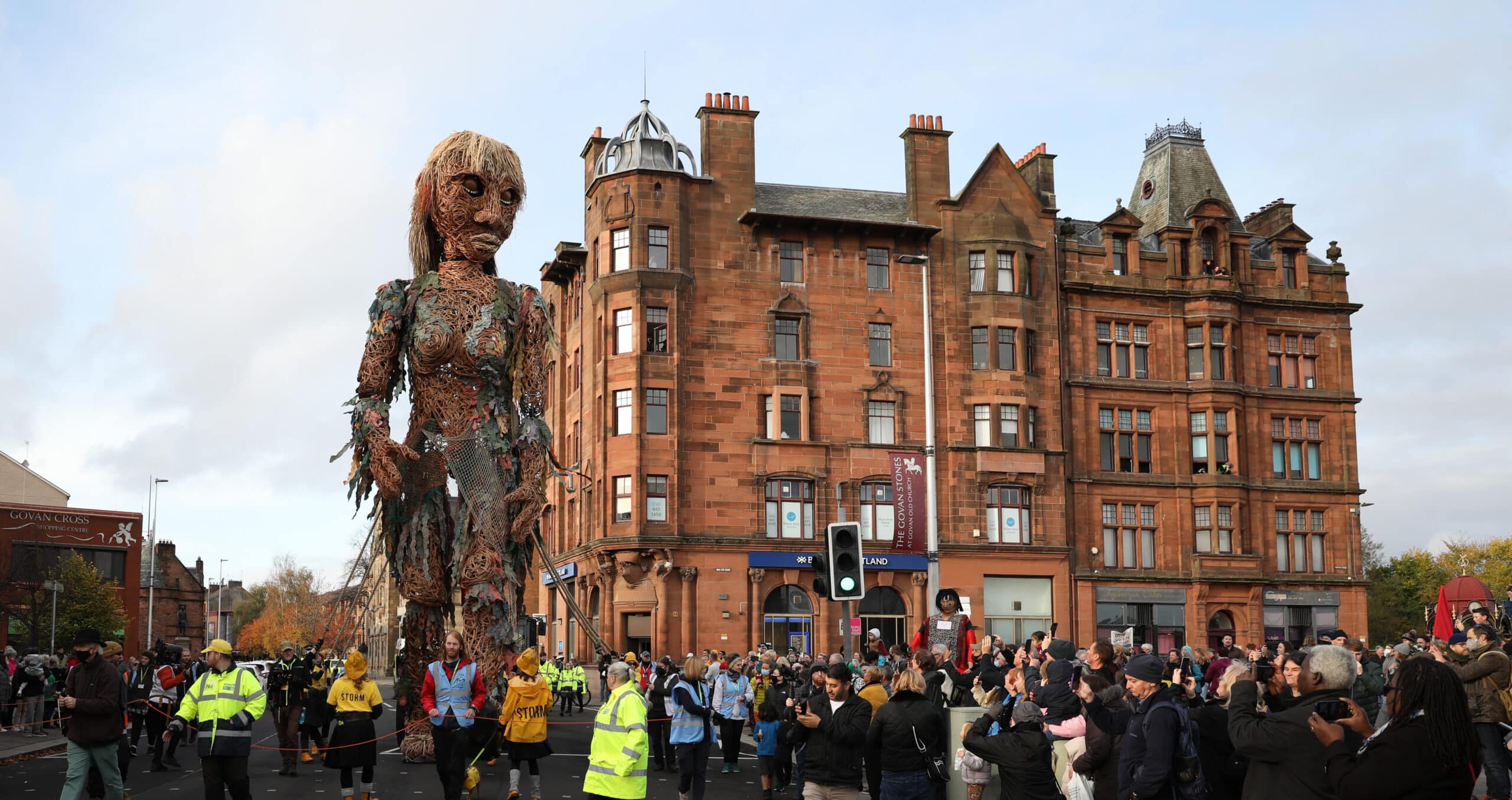





Twitter
Google plus
LinkedIn